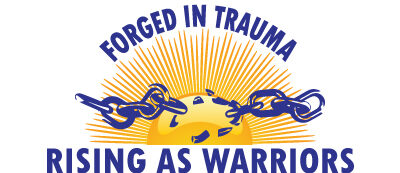July 4th is the day we celebrate the United States’ anniversary. George Washington’s name is synonymous with our country, considering all his great achievements that led to the founding of the United States of America. But the country that we know today wasn’t founded until 1776. So, what happened in 1754? A little something that the historians refer to as George Washington’s first July 4th. In this history comic, you will meet a young twenty-two-year-old version of the man who would someday become a legend. But before he could become a legend, he had to learn from his mistakes. I hope that this story inspires you in some way. If nothing else, a reminder that if George Washington could recover and grow from the mistakes he made at age twenty-two, then we can recover from our mistakes too.
As always, captions are included for each picture so that those of whom English is not their first language can follow along with the translator available on this site.
Daily Devotionals Brought to You by American History










American Colonists: “You’re all a bunch of bumpkins!”











Setting up the July 4th Mission: The (not so) Genius Plan






Jaena: Yeah, even better.

The July 4th Mission Begins: April 2-May 24, 1754




Jaena: Respect!

The Report

(left column) France: Troops: 1000; Boats & Canoes: 360; Heavy Artillery: 18
(right column) Britain: Troops: 34; Boats & Canoes: 11; Heavy Artillery: This game sucks! We’re going home.





Jaena: Yeah, that guy.









Reports on the French: May 24-May 28th



Washington’s Scout: “They’re 18 miles away!”
Christopher Gist: “50 of them invaded my cabin. They threatened to destroy everything I own!”
Half King: “I found their camp. They’re 7 miles away from you. Let’s get them!”
(Washington decides that they will in fact, get them.)






May 28th: Starting a Global War






Jaena: Ha! That wasn’t going to happen.





May 29th-30th

Jaena: Silver linings…







Jaena: An opportunity to brag…


Building Fort Necessity: May 30th – June 14th







Jaena: What are you talking about? You’ve been in charge this whole time.

Jaena: Okay, so your first official order as commander was the building of Fort Necessity.



Jaena: Cool! Let’s see what you made.

June 18th – June28th


Jaena: What?? No!



Jaena: So there!




War of Posts: The Gentleman’s War











June 28th – July 3rd




George Washington: 300


(left column) George Washington: Allies: 0; Troops: total is 445
(right column) France: Allies: 400; Troops: 800



Jaena: Whew, thank goodness! So, how much did the report exaggerate?

July 3rd Battle Time!








George Washington: Yes.




July 4th







Jaena: Hmm…




European News: George Washington’s Name is Mud!



“These articles of surrender are the most infamous a British subject ever put his hand to,” says anonymous source
July 4th Recovery










No Such Thing as a Perfect Recovery





Thomas Jefferson: Oh, shut up, Alex, you little braggart. I was his advisor too.

Thomas Jefferson: Hey Ben, tell Alex that I said…



Errors Once Discovered Are More Than Half Amended











Tools and Resources
What I love most about extraordinary people in history is not so much that they overcame major obstacles before they became legends. It’s how they did so before there were tools for problem solving. Then again, they got creative and in a lot of cases they were using tools centuries before there was a name for them. It’s my firm belief that we have yet to discover all available tools. That’s why both Master Toolbox 1 and Master Toolbox 2 will always be ongoing and always free on this site. Do you know of a tool that hasn’t been listed? Let me know!
Finally, to those who love history, graphic novels or if you like my extremely weird “unique” way of mashing up both, this is issue 4 of my history comics. The directory, where you can find all my past comics is available here.

